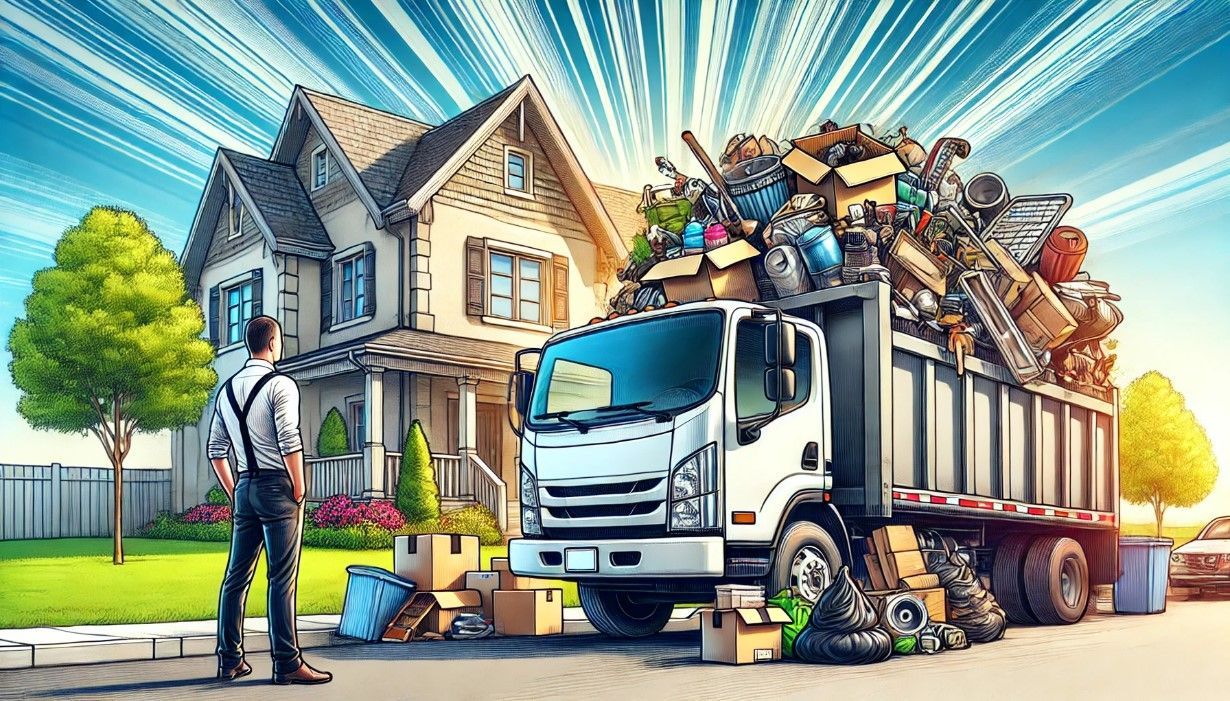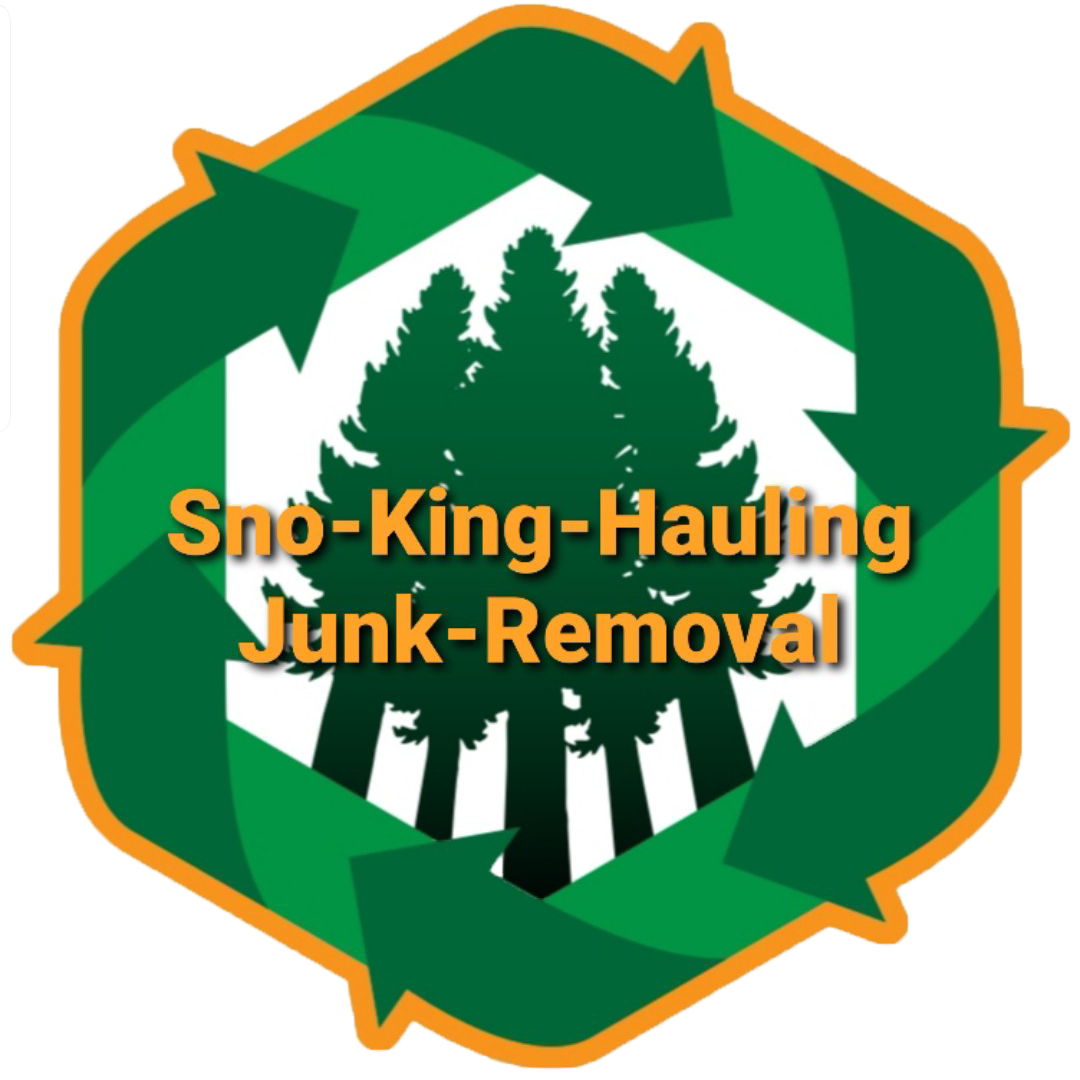
The Ultimate Guide to Junk Removal for Landlords
Junk removal is a crucial task for landlords, particularly when transitioning between tenants. Ensuring your rental property is clean and ready for new occupants is vital for maintaining its value and attracting reliable tenants. In this post, we’ll explore everything landlords need to know about junk removal, including tips on managing tenant trash, strategies for large cleanouts, and methods to streamline the process for maximum efficiency.
Why Junk Removal Matters for Landlords
When a tenant moves out, the state of the property can vary significantly. Some tenants leave behind a few boxes, while others might abandon furniture, appliances, or even piles of garbage. This leftover junk is more than just an inconvenience; it can impact your ability to rent the property quickly and affect your bottom line. Junk removal is essential for:
- Maintaining property value: A clean property is more attractive and maintains its market value better than one cluttered with junk.
- Attracting new tenants: Prospective tenants are more likely to rent a well-maintained, clutter-free space.
- Compliance with local laws: Some jurisdictions require landlords to remove all junk and debris to comply with health and safety regulations.
Common Types of Junk Landlords Encounter
Before diving into strategies, it's important to understand the types of junk landlords typically encounter:
- Household Trash: Includes everyday waste such as food scraps, packaging, and disposable items. This type of junk is usually easy to manage but can become overwhelming if left for long periods.
- Furniture and Appliances: Old sofas, broken appliances, and other large items are often left behind by tenants who don't want to deal with moving them. These items require special handling and disposal methods.
- Yard Waste: Overgrown gardens, branches, and outdoor furniture can also contribute to the junk pile, especially after long-term rentals.
- Hazardous Materials: Sometimes, tenants leave behind hazardous materials like paint, batteries, or chemicals. These require careful disposal according to local regulations.
Effective Junk Removal Strategies for Landlords
Managing junk removal effectively is about being proactive and organized. Here are some strategies to help landlords handle this task smoothly:
1. Include Junk Removal Clauses in Lease Agreements
One of the best ways to prevent junk buildup is to address it before it happens. Include clear clauses in your lease agreement about the tenant's responsibility for removing their belongings and the consequences of leaving junk behind. This can help reduce the amount of debris left after move-out.
2. Conduct Regular Inspections
Regular property inspections can help you stay ahead of potential junk issues. By checking in periodically, you can remind tenants of their responsibilities and spot problems before they escalate. This proactive approach also allows you to address any clutter or trash accumulation early on.
3. Schedule Junk Removal Services in Advance
When you know a tenant is moving out, it’s smart to schedule a junk removal service in advance. Many companies offer flexible scheduling, allowing you to book their services around your tenant’s move-out date. This ensures the property is cleared quickly and is ready for new tenants.
4. DIY vs. Professional Junk Removal: Know When to Call the Pros
Deciding between doing it yourself and
hiring professionals depends on the amount and type of junk. For minor cleanups, a DIY approach might suffice. However, for larger jobs involving bulky items or hazardous materials, professional junk removal services are the safer and more efficient option.
DIY vs. Professional Junk Removal
| Type of Junk | DIY Removal | Professional Service Required |
|---|---|---|
| Small household trash | Simple and manageable | Not needed |
| Large furniture and appliances | Requires truck and effort | Recommended for efficiency |
| Yard waste | Easy with basic tools | Needed for large volumes or heavy debris |
| Hazardous materials (paint, chemicals) | Not safe to handle without proper equipment | Always needed due to safety regulations |
5. Utilize Bulk Pickup Days
Many cities offer bulk pickup days where residents can dispose of large items for free. Coordinate these with your tenant’s move-out schedule to save on removal costs. Make sure to inform tenants about these services and encourage their use.
6. Donate or Recycle When Possible
Not all junk needs to go to the landfill. Items that are in good condition can often be donated or recycled. This not only helps the environment but can also provide a tax deduction benefit. Provide tenants with a list of local charities or recycling centers to encourage responsible disposal.
7. Keep Emergency Junk Removal Contacts Handy
Emergencies happen, and sometimes a tenant might leave without notice, leaving behind a significant mess. Having a list of reliable junk removal services on hand ensures you can address the issue promptly and prevent any delay in renting out the property again.
FAQs About Junk Removal for Landlords
- What should I do if a tenant leaves behind hazardous materials?
Always contact a professional junk removal service that specializes in hazardous waste to handle these items safely and in compliance with local regulations.
- Can I deduct junk removal costs from a tenant’s security deposit?
Yes, if the lease agreement states that tenants are responsible for removing their belongings upon move-out, you can deduct these costs. Always provide a detailed invoice to the tenant.
- How can I encourage tenants to leave the property clean?
Providing a checklist of cleaning and junk removal tasks at move-in can set clear expectations. Also, consider offering incentives for leaving the property in excellent condition.
Junk removal is an inevitable part of being a landlord, but it doesn’t have to be a hassle. By setting clear expectations, conducting regular inspections, and utilizing both DIY and professional services wisely, you can keep your properties clean and ready for new tenants. Stay proactive, and your efforts will pay off in the form of shorter vacancy periods and higher tenant satisfaction.
Have more tips on handling junk removal efficiently? Share your experiences in the comments below, and don’t forget to share this post with fellow landlords!
Furniture Removal
- Couch Removal
- Furniture Removal
- Mattress Removal
- Bed Removal
- Futon Removal
- Box Spring Removal
- Couch Removal
- Sofa Removal
- Love Seat Removal
- Sectional Removal
- Table Removal
- Chair Removal
- Office Furniture Removal
- Bulk Item Pickup
Appliance Removal
- Refrigerator Removal
- Appliance Removal
- Stove Removal
- Range Removal
- Microwave Removal
- Oven Removal
- Freezer Removal
- Dishwasher Removal
- Washer Removal
- Dryer Removal
Other Services
- Hot tub Junk Removal
- Dumpster Rentals
- Shed Junk Removal
- Hoarder house Cleanouts
- House Junk Removal
- Construction Waste Removal
- Garage Cleanouts
- Foreclosure Clear outs
- Eviction Clean outs
- Apartment Cleanouts
- Property Clean outs
- Estate Clean outs
- Hoarding Clean outs
- Yard Waste Removal
- Storage Unit Cleanouts
- Warehouse Cleanouts
- Commercial Junk Removal
OUR SERVICES AND AREAS
- Everett, WA
- Seattle, WA
- Marysville, WA
- Snohomish, WA
- Arlington, WA
- Mukilteo, WA
- Monroe, WA
- Granite Falls, WA
- Bothell, WA
- Whidbey Island, WA
- Stanwood, WA
- Edmonds, WA
Contact us
If you have any questions or need any assistance after business hours, please get in touch.
Phone
BUSINESS HOURS
- Monday
- -
- Tuesday
- -
- Wednesday
- -
- Thursday
- -
- Friday
- -
- Saturday
- -
- Sunday
- Closed
All Rights Reserved | Sno King Junk Removal
